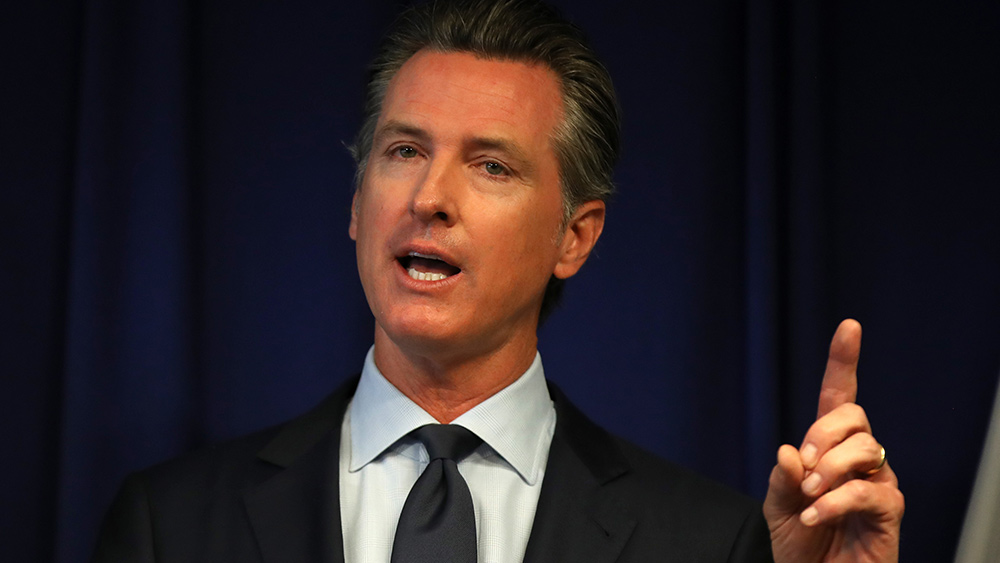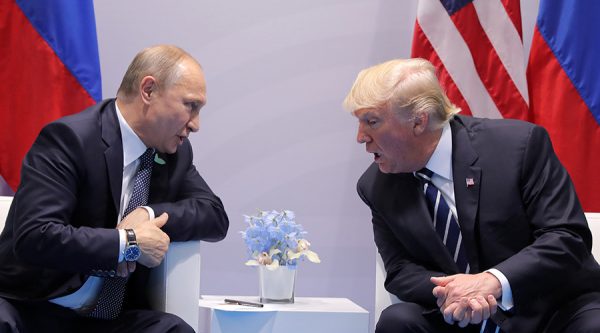 Parler
Parler Gab
Gab
- Governor Gavin Newsom and California AG Rob Bonta filed a federal lawsuit on April 16, 2025, challenging Trump’s tariffs on imports from China, Mexico, and Canada, arguing they unlawfully bypass Congress under the International Emergency Economic Powers Act (IEEPA).
- The state claims the tariffs threaten its $3.4 trillion economy, hurting key industries like agriculture (almonds, dairy), tech, and manufacturing, with projections of a $2 billion budget deficit due to trade disruptions.
- The lawsuit asserts Trump overstepped presidential authority by invoking IEEPA—traditionally used for sanctions—to impose tariffs based on trade deficits and border security, a move without legal precedent.
- The Trump administration argues tariffs are necessary to combat trade deficits, criticizing Newsom for focusing on tariffs instead of state issues like homelessness and crime. The DOJ seeks to move related cases to the Court of International Trade.
Newsom challenges “radical” use of emergency powers
The lawsuit claims Trump’s tariffs, levied without congressional approval, exceed legal boundaries of the IEEPA, which grants the president authority to regulate financial transactions during national emergencies. While traditionally used for sanctions, Trump cites a national emergency tied to trade imbalances and border security as justification. Newsom’s complaint argues the tariffs amount to an improper “tax increase,” harming California’s agriculture, technology and manufacturing sectors. “President Trump’s new tariff regime has already had devastating impacts on the economy, creating chaos in the stock and bond markets,” Newsom wrote, citing potential job losses and inflation spikes. Crop exports like almonds ($4.7 billion) and dairy ($2.4 billion) face disproportionate costs, while tech manufacturers dependent on global supply chains face disruptions. The state seeks to have the tariffs declared void and halted immediately. “No state is poised to lose more than California,” Newsom stated at a press conference, highlighting revised budget forecasts projecting a $2 billion deficit due to tariffs’ economic ripple effects.White House defends “indispensable” tariff policy amid legal threat
Administration officials reject California’s argument, framing the tariffs as essential to combatting a “decimating” trade deficit. White House spokesperson Kush Desai fired back against Newsom, accusing him of neglecting domestic challenges like homelessness and crime: “Instead of focusing on California’s rampant crime, Gavin Newsom is spending his time trying to block President Trump’s historic efforts to finally address the national emergency of our country’s persistent goods trade deficits,” Desai said. The administration argues tariffs are an appropriate response under IEEPA’s mandate to address foreign economic threats. The Justice Department has already requested three existing tariff-related lawsuits be transferred to the specialized Court of International Trade, though California insists its case rightly belongs in a broader federal forum.Historical and legal context
IEEPA, enacted in 1977, has been used for decades to address threats like sanctions against hostile regimes or cyberattacks. Its reinterpretation to justify tariffs marks a radical departure. Legal scholars note no precedent for tariffs under the statute: “This is the first time a president has attempted to rely on this law to impose tariffs,” explained Newsom’s legal team in a statement. Corporate lobbyists and economists have publicly questioned Trump’s use of emergency powers, with San Francisco Federal Reserve President Mary Daly warning of recession risks and Fortune 500 businesses filing their own pending suits. Critics argue tariffs lack democratic accountability, imposed arbitrarily on partner nations without legislative debate.Crossroads for federalism and marketplace Darwinism
This lawsuit transcends tariffs—it is a test of federal-state power dynamics. California’s gambit to “Trump-proof” its economy through litigation could inspire other blue states to challenge federal policies on immigration, climate or defense spending. Meanwhile, Trump’s economic nationalist campaign vows to double down on tariffs, framing them as necessary sacrifices for long-term job growth. Yet markets tremble at the unpredictability: the S&P 500 plunges as headlines shift, and Apple suppliers brace for Chinese exorbitant tariffs. For California, the stakes are existential—the state’s status as a global economic powerhouse hinges on open markets. The answer to whether a single state can halt a president’s tariff war will come not in the Capitol, but in a courtroom panel’s parsing of emergency powers doctrine. “This isn’t just about California—it’s about who sets the rules for trade in the 21st century,” Bonta said. The decision, whichever way it falls, may reshape those rules forever. Sources include: CNBC.com Bloomberg.com FoxNews.comIsrael’s relentless bombardment of Gaza kills dozens more as humanitarian crisis deepens
By Cassie B. // Share
Trump urges Putin to ‘STOP’ strikes on Kyiv, criticizes Ukraine’s stance in peace talks
By Cassie B. // Share
Boeing’s China dilemma strikes at heart of trade and security crises
By Willow Tohi // Share
Tariffs threaten access to healthy diets as grocery prices soar
By Willow Tohi // Share
Tensions persist as Russia and Ukraine remain at odds over ceasefire prospects
By Belle Carter // Share
Governments continue to obscure COVID-19 vaccine data amid rising concerns over excess deaths
By patricklewis // Share
Tech giant Microsoft backs EXTINCTION with its support of carbon capture programs
By ramontomeydw // Share
Germany to resume arms exports to Israel despite repeated ceasefire violations
By isabelle // Share










